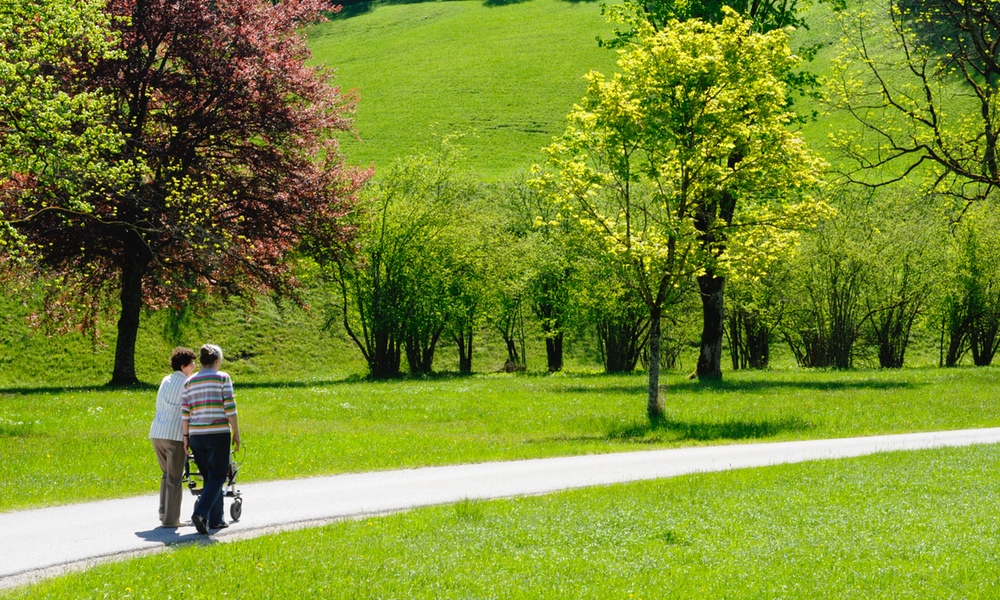There is growing evidence of the health benefits of urban green spaces such as parks and blue spaces such as rivers and lakes. Spending time outdoors in nature may be especially good for seniors. Being exposed to even small amounts of available green and blue space may improve older adults' mental and physical health, a Washington State University study shows.
“Loss of green and blue spaces to rapid urban development may have a negative environmental impact, and a negative public health impact as well,” Adithya Vegaraju, first author on the study, said in a statement.People living in areas with just 10 percent more forest space within their ZIP codes reported lower levels of psychological distress and fewer mental health issues.
Nearly 43,000 people filled out the Behavioral Risk Factor Surveillance Survey (BRFF). Participants all lived in urban areas of Washington State between 2011 and 2019 and filled out questionnaires about their general and mental health and level of psychological distress. Then Vegaraju and his colleague, Solmaz Amiri, analyzed their responses.
When the researchers presented their preliminary results in April 2023, they only looked at the association between severe psychological distress and the distance to the nearest green spaces and blue spaces. In the final version of the study, they also assessed the amount of tree cover, forested areas, open spaces and the length of trails within participants' residential ZIP codes.
People living in areas with just 10 percent more forest space within their ZIP code reported lower levels of psychological distress, as well as fewer mental health issues that required treatment or interfered with their lives. And a ten percent increase in tree cover, green space, bodies of water and trail length made people less likely to rate their general health as fair or poor.
The survey responses included in the study were all from participants who were at least 65 years old. Older persons are particularly vulnerable to mental health conditions such as depression, which can increase their risk of cognitive decline or dementia. They are also less likely to receive treatment for these conditions.
“Older adults with depression or other mental health issues are known to be more resistant to medical interventions or talk therapy, which are the go-to treatments for these conditions,” Vegaraju, a medical student at the Elson S. Floyd College of Medicine at Washington State, told TheDoctor. Spending time outdoors could be a way to improve mental health outcomes in older persons who are reluctant to try other types of therapy.Almost two percent of the urban seniors had signs of severe psychological distress, and 19 percent reported fair to poor general health.
One solution might be for healthcare providers to give older persons a nature prescription, advising them to spend more time outdoors.
Unfortunately, the underlying reasons for the health benefits of spending time in nature are not yet well understood. It is possible that time in nature helps by reducing stress and fatigue, encouraging physical activity and increasing seniors' opportunities for social interaction. But all these "explanations" are as yet unproven, Vegaraju pointed out.
More research needs to be done to determine exactly how exposure to green and blue spaces benefits mental and physical health, Amiri, the study's senior author and a research assistant professor at Washington State, explained. He hopes next to examine the link between exposure to nature and cognitive decline, an early sign of dementia or Alzheimer's disease.
The study is published in Health & Place.





